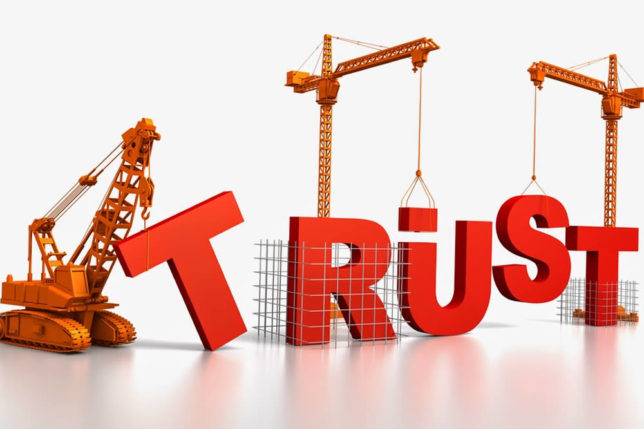Philanthropy
Addressing Declining Trust in Nonprofits and Philanthropy
And looking at how to rebuild it.


The Center for Effective Philanthropy and the Council on Foundations co-hosted an interesting webinar discussion last week about declining trust in nonprofits and philanthropy in America. Introducing the webinar, the Center noted that “[f]raying trust in institutions, perceptions that nonprofits and philanthropy are politicized, intensifying critiques of philanthropy as a ‘ruse’ or self-promotion, increasing societal polarization, and well-publicized scandals all may play a part” in the decline.
The 75-minute event, “Rebuilding Trust in Nonprofits and Philanthropy,” was moderated by Center for Effective Philanthropy president Phil Buchanan. Its panelists were: Kathleen Enright, Council on Foundations president and chief executive officer; Beth Breeze, director of the Global Challenges Doctoral Centre and the Centre for Philanthropy at the University of Kent; Chelsea Peters, chief strategy officer of the Walton Family Foundation; and LaTida Smith, president of The Winston-Salem Foundation.
“I think that rather than being worried about good intentions that are imperfectly executed, I think now the public are worried about the bad intentions of nonprofits, and in particular of their donors—and sometimes unintentional, but often not,” said Breeze, author of the recent In Defence of Philanthropy.
“The headline concern that I see, and that I’ve been writing about, is that philanthropists are in it for themselves—that behind the facade of altruism and expressions of concern for others, in reality, what they’re motivated by is a desire to advance their own agenda in some way,” she continued. “You know, whether that’s protecting their wealth and their elite status, whether it’s improving their reputation, gaining access to power ,or using what power they have as wealthy people to impose their will on others.”
Polarization and (Non-?)Interaction
The Center for Effective Philanthropy’s Buchanan brought up “the relationship between the polarization in the country and questions of trust in the sector, and then the challenge, I think, that exists of being true to your values—for example, with respect to racial equity.”
He continued, “There might be certain donors or organizations that we simply don’t want to interact or work with because to do so would be to normalize extremism potentially, on the one hand. And then on the other hand, we cannot just be a choir talking to each other.”
Further explaining the challenge, Buchanan—who publicly tussled last year with the Philanthropy Roundtable about some of what he has called its “divisive and false” commentary about certain foundations’ activity—then said, “We have to try to influence people and build coalitions,” but “then add into that mix the fact that there has been, I think, an orchestrated, deliberate effort … to target certain foundations as pushing a woke agenda, which likely further undermines trust for folks who are inclined to believe that silly” agenda.
The Council on Foundations’ Enright said, “Philanthropy must be a trusted partner in advancing the greater good, or we’re not going to be effective. So we have to focus on how we can be trustworthy. And we have to make the changes to make that so.”
She continued, “Anyone who cares about their community, anyone who cares about civil society, anybody who cares about democracy should be thinking about how do we increase trust in nonprofits and philanthropy, because we are so vital to all of those things. So it is very worrisome that trust is declining in these key institutions.”
This article originally appeared as “In Webinar, Center for Effective Philanthropy and Council on Foundations Address Declining Trust in Nonprofits and Philanthropy,” in the Giving Review on June 21, 2022.


